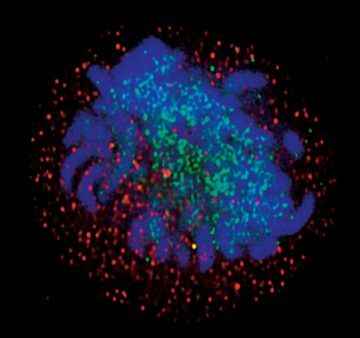Bill O’Neil in PLOS Biology:
 The pathologist makes do with red wine until an effective drug is available, the biochemist discards the bread from her sandwiches, and the mathematician indulges in designer chocolate with a clear conscience. The demographer sticks to vitamin supplements, and while the evolutionary biologist calculates the compensations of celibacy, the population biologist transplants gonads, but so far only those of his laboratory mice. Their common cause is to control and extend the healthy lifespan of humans. They want to cure ageing and the diseases that come with it.
The pathologist makes do with red wine until an effective drug is available, the biochemist discards the bread from her sandwiches, and the mathematician indulges in designer chocolate with a clear conscience. The demographer sticks to vitamin supplements, and while the evolutionary biologist calculates the compensations of celibacy, the population biologist transplants gonads, but so far only those of his laboratory mice. Their common cause is to control and extend the healthy lifespan of humans. They want to cure ageing and the diseases that come with it.
…Extending Life
Although the life-enhancing effects of Sinclair’s polyphenols are so far confined to the baker’s yeast Saccharomyces cerevisiae, the work suggests that researchers are only one small step from making a giant leap for humankind. “People imagined that it might have been possible, but few people thought that it was going to be possible so quickly to find such things,” says Sinclair. The field of ageing research is buzzing. Resveratrol stimulated a known activator of increased longevity in yeast, the enzyme Sir-2, and thereby extended the organism’s lifespan by 70% (Box 1). Sir-2 belongs to a family of proteins with members in higher organisms, including SIR-2.1, an enzyme that regulates lifespan in worms, and SIRT-1, the human enzyme that promotes cell survival (Figure 1). Though researchers still do not know whether SIRT-1, or “Sir-2 in humans,” as Sinclair puts it, has anything to do with longevity, there is a good chance that it does, judging by its pedigree. In any event, resveratrol proved to be a potent activator of the human enzyme. This might not be altogether surprising, at least not now, given that the polyphenol is already associated with health benefits in humans, notably the mitigation of such age-related defects as neurodegeneration, carcinogenesis, and atherosclerosis.
More here.
